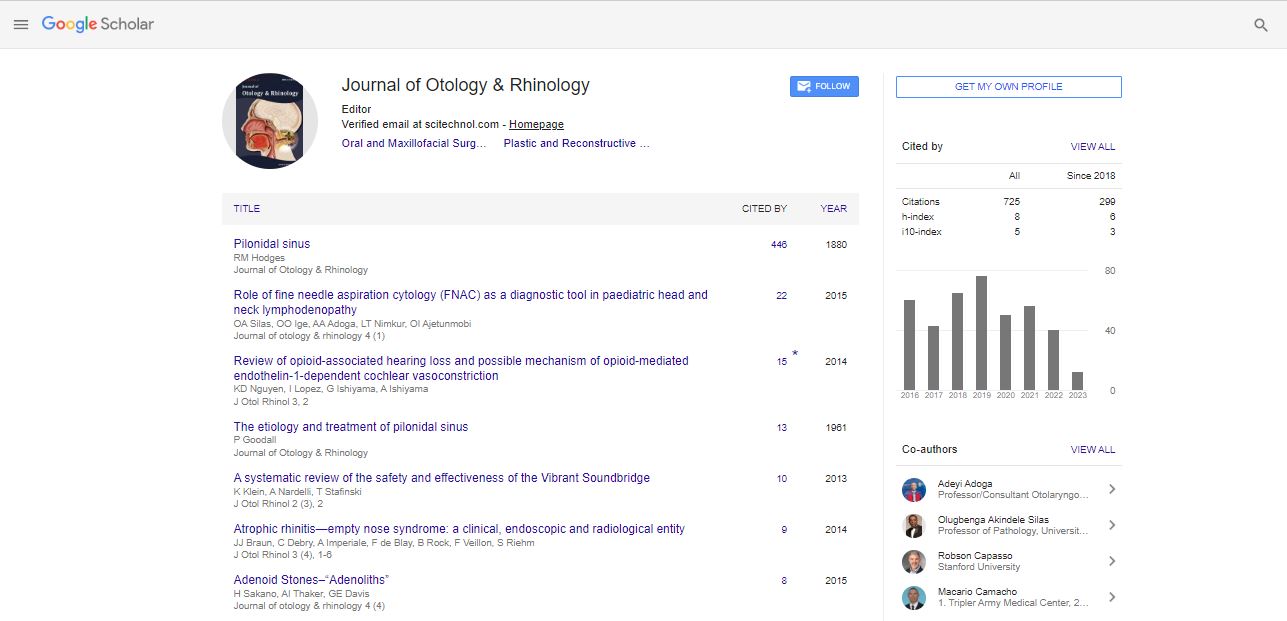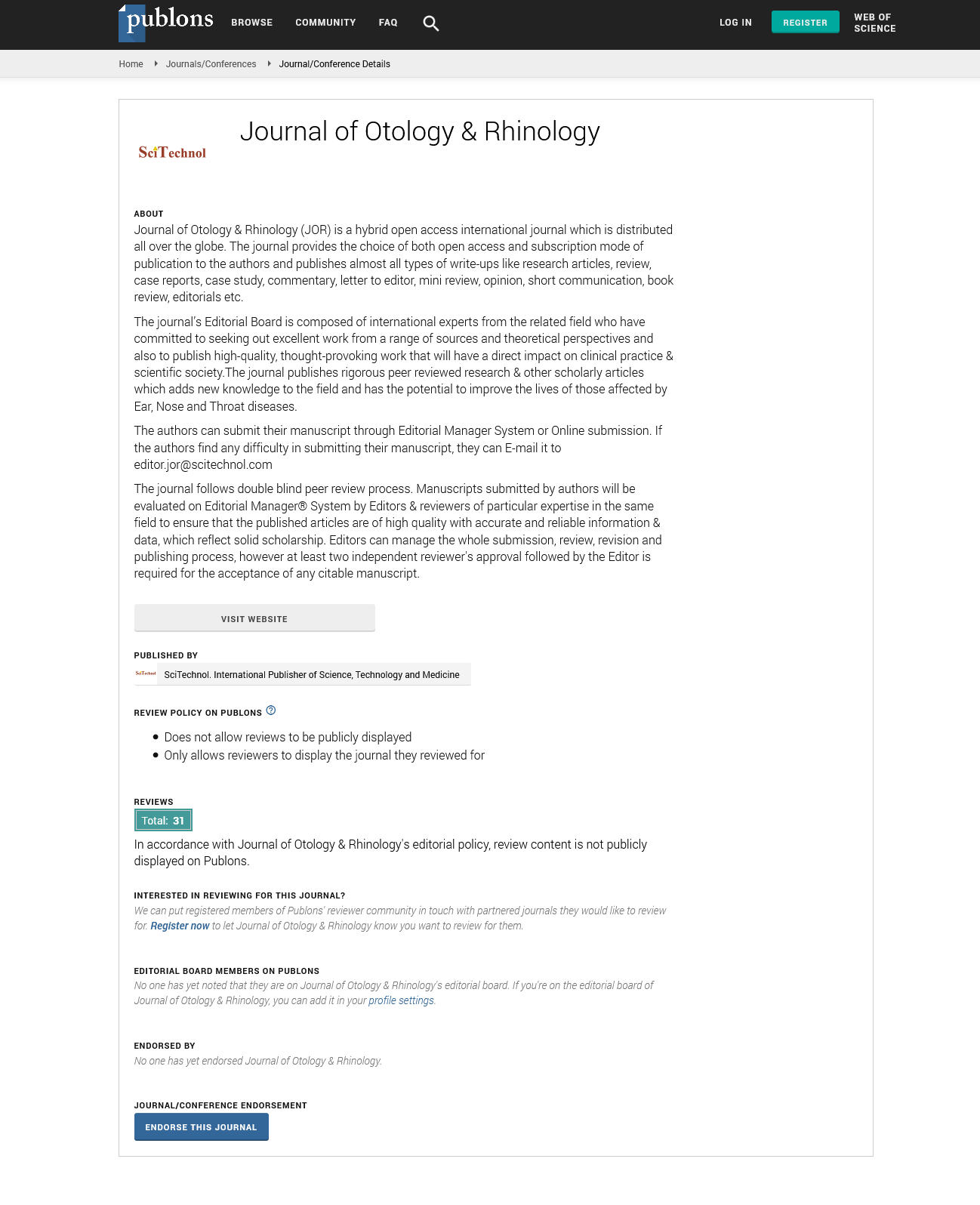Overall and disease-Specific survival outcomes following primary surgery for oral squamous cell carcinoma: Analysis of consecutive 67 patients
Myoung-Sang You and Kang-Min Ahn
Asan Medical Center, South Korea
: J Otol Rhinol
Abstract
Objectives: The purpose of this study was to evaluate the predictive factors for survival of oral squamous cell carcinoma (OSCC) and investigate the overall and disease-specific survival outcomes of consecutive 67 primary OSCC patients who underwent operation in a single institution. Materials & Methods: A total of 67 consecutive patients who underwent operation due to OSCC from January 2006 to September 2014 were included in this study. Patients were classified according to age, sex, pTNM stages, primary sites, smoking and alcohol drinking habits, depth of invasion, perineural and lymphovascular invasion, cell differentiation and postoperative radiotherapy. Kaplan-Meier methods were used to estimate the disease-specific and overall survival by patient’s groups and the log-rank test was used to compare survival curves. Cox regression methods were used to investigate the main independent predictors of survival. The χ2 test was used to assess differences between the variables and odds ratios were calculated. Results: A total of 19 patients died of OSCC during follow-up periods. Another five patients died of other diseases such as lung adenocarcinoma (n=1), cerebral infarction (n=1), general weakness (n=2) and pneumonia (n=1). Tongue cancer (n=16) was most common sites for primary origin followed by buccal mucosa (n=15), mandibular gingiva (n=15), maxillary gingiva (n=9), floor of mouth (n=9), retromolar trigone (n=2) and palate (n=1). TNM stage I was observed in 11 patients followed by stage II (n=22), and stage IV (n=34). Stage III was not found in this study. Overall survival of all patients was 64.2% and disease-specific survival was 71.6%. Disease-specific survival of stage I and II was 100%. In stepwise Cox regression, the two predictors selected for disease-specific survival were pTNM stages (p<0.0001, odd ratio=19.633) and presence of metastatic lymph node (p=0.0004, odd ratio=0.1039). Conclusion: OSCC has shown a poor prognosis; however, there was improved survival outcomes compared with past studies. Advanced stage and presence of metastatic lymph node showed poorer survival than early stage OSCC and negative neck node. Invasion depth, cell differentiation and postoperative radiotherapy were not related with survival. Stage I and II OSCC showed excellent survival results in this study.
Biography
Myoung-Sang You DDS, MSD, graduated from the Department of Chemistry in 2006 from Korea Advanced Institute of Science and Technology, South Korea. He has done MSD in Oral and Maxillofacial Surgery in 2010 from School of Dentistry, Seoul National University, South Korea. He is a Resident in Department of Oral and Maxillofacial Surgery from 2015-2017 in Seoul Asan Medical Center, South Korea.
 Spanish
Spanish  Chinese
Chinese  Russian
Russian  German
German  French
French  Japanese
Japanese  Portuguese
Portuguese  Hindi
Hindi 


